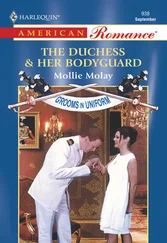At this news I felt my consciousness departing and leaned forward in my chair, letting out a great Oh!
McBride said, It doesn’t matter at all. They were still heroes, and no one’s going to bring out the matter of the submersibles publicly. It would need to come out, of course, only if you made public accusations that we were niggardly towards those men. Are you all right, Mrs Waterhouse?
He was rising in his seat. I felt heeled-over, hanging at a disastrous angle, and when I tried to correct that I stumbled off my chair. I certainly could not speak. There was a flurry of people entering the office and bringing water, but that made me angry for some reason, and with normal irritation, I returned to myself.
Does it mean they were tortured? I asked. I meant, tortured about the submersibles.
For the first time the minister showed some unease. He mumbled, I think it was more a matter of deception and feint…
I stood up. I said, I can’t bear it if they were tortured!
My ears were ringing. I knew I was failing Leo, not up to his strength. I have no clear memory from that point until Rhonda and Sherry were taking me down the stairs and assuring various women staff that I was fine now and that we didn’t need tea. It would have been impossible for us to drink in McBride’s shadow. I couldn’t have borne it.
We were fortunate that in the vacant parkland beyond the front door, a cab was discharging a passenger. Rhonda ran and captured it, and we all got in without a word. The only things said during the journey were by Rhonda. I probably shouldn’t have pushed this trip on you, she told us wanly. Neither Sherry Danway nor myself were speaking.
We arrived at the boarding house, and Mrs Danway got out immediately and hurried inside, still without saying anything. Since Rhonda had insisted on paying the first fare, I applied my confused mind to paying this one. Then we caught up with Sherry – she was in the lobby asking the girl for her key. Rhonda took her by the arm and said something about hoping she was not too upset. She did not get an answer. Well-meaningly, she followed Sherry to the stairs. Don’t go up to your room, Sherry. Let’s have a cup of tea and all cheer up. Why should we give a damn about these submersible boats? If it saved any of them from getting beaten up, all the better!
Sherry Danway said, I wish I’d never seen you. You’ll go home to your husband. Nothing’s lost to you. Grace and I go home knowing our husbands are blamed, and the blame will always be there, in some file. I thought I was as lonely as a person could be. But you’ve managed to make it worse. I have a different picture of Hugo I have to live with now.
She covered her eyes with a web of fingers. Poor bloody Danway, she said. Wanting to build his house. Poor helpless big bugger!
I went up to her and held her, and began to feel her inner collapse and the release of tears. It was as if the impact of the original news of execution had occurred all over again. It was exactly as Sherry had said. The minister had given us a new dimension to the version of their deaths we had become accustomed to and managed to live on with. We both doubted we had the strength to absorb new versions.
Rhonda moved to join us in our mourning, but I dissuaded her with a severe look. I felt Sherry Danway’s crazy, unstoppable anger too.
Rhonda’s face filled with colour. You blame me for this? she asked. Do you?
Yes, I admitted. Don’t worry. We can’t help it. But it was never your business!
On the way back to Sydney on the train, we all read and moped. Rhonda knew that whatever she said it could call up a fury in us. I went especially to get a cup of tea with her in the buffet car, and I was able to summon the grace to say to her again, Don’t worry. It’s not your fault.
If I were married to Bantry, she said, I wouldn’t blame him for anything he gave away.
Do you really think we blame our husbands? Of course, we bloody well don’t.
I felt a desire to hurt her badly – even with a blow. But it had to be suppressed. I warned her though. You’re in no position to understand it or be impatient with us.
She sighed and looked out the window. She was a good woman, slow to take offence.
I realise I shouldn’t have come, she said, only partly in chagrin.
It was not easy of course, but I adjusted to the new terms of Leo’s death because people do that, changing the course of their thinking even while believing it can’t be done. In some ways I didn’t want to examine too closely, the new version of Leo, once painfully digested, made it easier for me to enter a new phase. I married Laurie Burden in 1953, and – in defiance of doctors and nurses who considered me an ‘elderly primaparens’, a first-time mother of advanced age, an opinion they expressed in terms such as my making ‘a late run’ or ‘leaving things a bit late’ – I gave birth to a healthy boy, Alexander. Alexander was one of those children who carry an air not of being a stranger visiting the earth but of having the ways of the world worked out. He was what we sometimes called a happy warrior, perpetually engaged in cricket, rugby and surfing, an adequate scholar but not to an extent that interfered with his social life. His father considered him not adequately serious. I blessed the kindly star under which he’d been born.
We were suddenly a sanguine and fortunate family, living above Balmoral Beach, sailing every second Saturday on Laurie’s boat, opening up Laurie’s house and garden to a tide of visitors, contacts of Laurie’s, many of whom I found myself liking.
Dotty also seemed to have remade her life. I got letters from her. About 1948 she had published a brilliant novel about East End women. It had been made into an angry little film everyone considered a classic. She was poetry editor of two magazines, and a literary figure, and she was tossing up whether to join a new publishing company as senior editor. She had not remarried.
Occasionally a Memerang story would surface without warning in the press – brave Doucette, brave everyone, the gallant Captain Leo Waterhouse. A tale of confrontation, escape, betrayal and tragedy, etc. I knew by some instinct I had not heard the last of any of it.
In the 1960s, Memerang came to a head again through the researches of a young man named Tom Lydon. He was one of those Australian journalists who heavily populated the British press in the days when Fleet Street was a name synonymous with newspapers. A handsome, mannerly young fellow whose clothes had the appropriate scuffed look of a graduate student, he worked for the Observer in England and was contemplating a book on the history of Memerang. From the way he carried himself when he came to see me on a journey home to Sydney, I noticed in him a doggedness which might raise awkward questions all around. The Beatles had just become big, and I wished his mind was set on them rather than the 1940s. But he was easy to talk to, and I did enjoy revisiting such subjects as what an extraordinary pair Dotty and Rufus were.
The submarine? he asked me at last. You know, it came back late to the meeting place, this NE1, Serapem. But it did come back in the end. And Eddie Frampton, their conducting officer, landed there but decided they weren’t there to be picked up. He landed once. And that was it.
I said, He landed once ? To look for them?
Yes, I regret that’s the situation.
For the moment, I felt impaled.
Look, that’s all it seems from the documents I have.
But if you want to pick men up, you have to look more than once.
When I go back to England, said Tom Lydon, I’ve got to try to see Frampton. He invented the Silver Bullets, you know. But why did he land on the pick-up island just once.
Читать дальше












